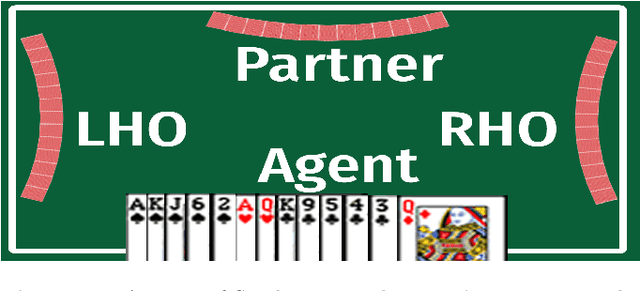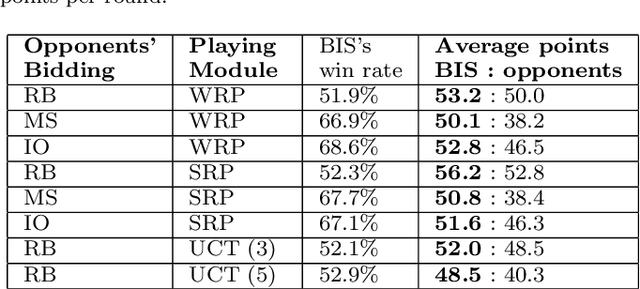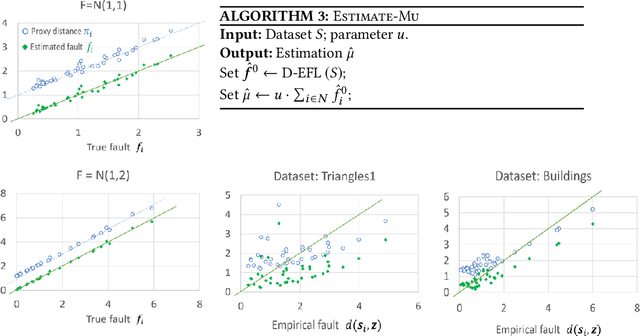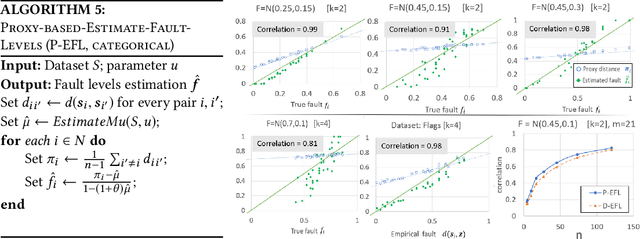Gal Cohensius
Bidding in Spades
Feb 10, 2020



Abstract:We present a Spades bidding algorithm that is superior to recreational human players and to publicly available bots. Like in Bridge, the game of Spades is composed of two independent phases, \textit{bidding} and \textit{playing}. This paper focuses on the bidding algorithm, since this phase holds a precise challenge: based on the input, choose the bid that maximizes the agent's winning probability. Our \emph{Bidding-in-Spades} (BIS) algorithm heuristically determines the bidding strategy by comparing the expected utility of each possible bid. A major challenge is how to estimate these expected utilities. To this end, we propose a set of domain-specific heuristics, and then correct them via machine learning using data from real-world players. The \BIS algorithm we present can be attached to any playing algorithm. It beats rule-based bidding bots when all use the same playing component. When combined with a rule-based playing algorithm, it is superior to the average recreational human.
Truth Discovery via Proxy Voting
May 02, 2019



Abstract:Truth discovery is a general name for a broad range of statistical methods aimed to extract the correct answers to questions, based on multiple answers coming from noisy sources. For example, workers in a crowdsourcing platform. In this paper, we design simple truth discovery methods inspired by \emph{proxy voting}, that give higher weight to workers whose answers are close to those of other workers. We prove that under standard statistical assumptions, proxy-based truth discovery (\PTD) allows us to estimate the true competence of each worker, whether workers face questions whose answers are real-valued, categorical, or rankings. We then demonstrate through extensive empirical study on synthetic and real data that \PTD is substantially better than unweighted aggregation, and competes well with other truth discovery methods, in all of the above domains.
 Add to Chrome
Add to Chrome Add to Firefox
Add to Firefox Add to Edge
Add to Edge